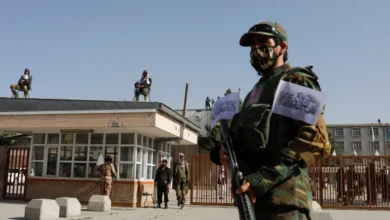What Israel’s attack on Iran means for the future of war

In the predawn darkness of June 13, Israel launched a “preemptive” attack on Iran. Explosions rocked various parts of the country. Among the targets were nuclear sites at Natanz and Fordo, military bases, research labs, and senior military residences. By the end of the operation, Israel had killed at least 974 people while Iranian missile strikes in retaliation had killed 28 people in Israel.
Israel described its actions as anticipatory self-defence, claiming Iran was mere weeks away from producing a functional nuclear weapon. Yet intelligence assessment, including by Israeli ally, the United States, and reports by the International Atomic Energy Agency (IAEA) showed no evidence of Tehran pursuing a nuclear weapon. At the same time, Iranian diplomats were in talks with US counterparts for a possible new nuclear deal.But beyond the military and geopolitical analysis, a serious ethical question looms: is it morally justifiable to launch such a devastating strike based not on what a state has done, but on what it might do in the future? What precedent does this set for the rest of the world? And who gets to decide when fear is enough to justify war?
A dangerous moral gamble
Ethicists and international lawyers draw a critical line between preemptive and preventive war. Pre-emption responds to an imminent threat – an immediate assault. Preventive war strikes against a possible future threat.
Only the former meets moral criteria rooted in the philosophical works of thinkers like Augustine and Aquinas, and reaffirmed by modern theorists like Michael Walzer — echoing the so-called Caroline formula, which permits preemptive force only when a threat is “instant, overwhelming, and leaving no choice of means, and no moment for deliberation”.Israel’s raid, however, fails this test. Iran’s nuclear capability was not weeks from completion. Diplomacy had not been exhausted. And the devastation risked — including radioactive fallout from centrifuge halls — far exceeded military necessity.
The law mirrors moral constraints. The UN Charter Article 2(4) bans the use of force, with the sole exception in Article 51, which permits self-defence after an armed attack. Israel’s invocation of anticipatory self-defence relies on contested legal custom, not accepted treaty law. UN experts have called Israel’s strike “a blatant act of aggression” violating jus cogens norms.
Such costly exceptions risk fracturing the international legal order. If one state can credibly claim pre-emption, others will too — from China reacting to patrols near Taiwan, to Pakistan reacting to perceived Indian posturing — undermining global stability.
Israel’s defenders respond that existential threats justify drastic action. Iran’s leaders have a history of hostile rhetoric towards Israel and have consistently backed armed groups like Hezbollah and Hamas. Former German Chancellor Angela Merkel recently argued that when a state’s existence is under threat, international law struggles to provide clear, actionable answers.
The historical scars are real. But philosophers warn that words, however hateful, do not equate to act. Rhetoric stands apart from action. If speech alone justified war, any nation could wage preemptive war based on hateful rhetoric. We risk entering a global “state of nature”, where every tense moment becomes cause for war.










